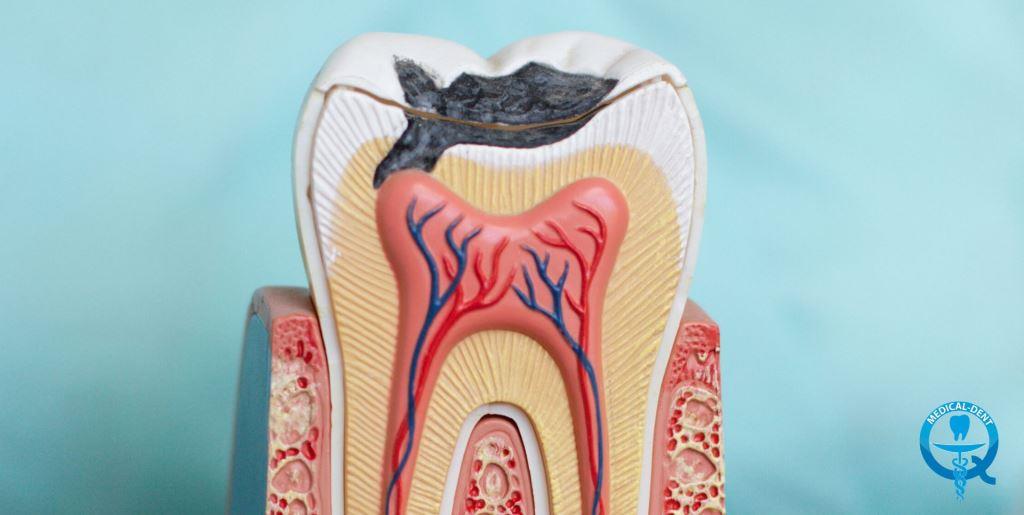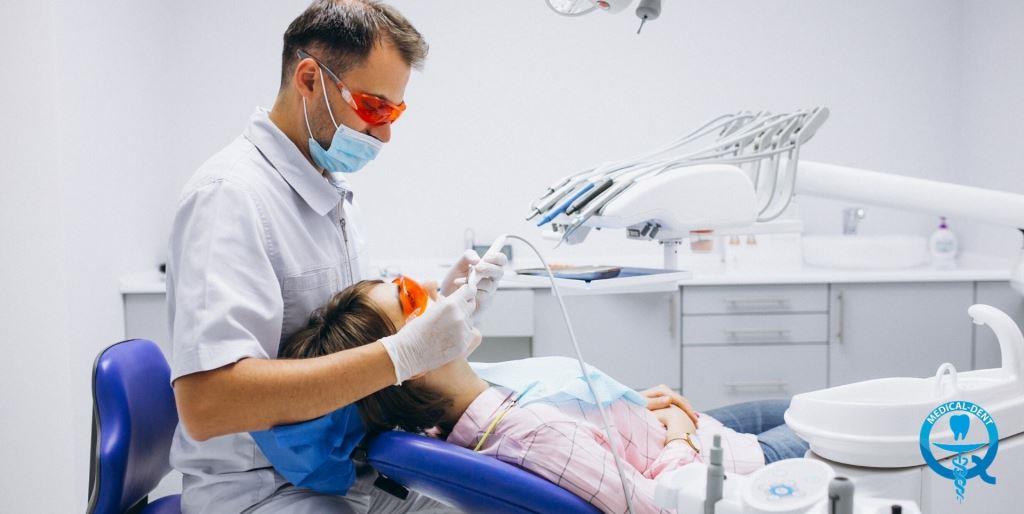You need to know that damage to the pulp of a tooth is a serious problem. If you don't react in time, the tooth may be damaged to the point where it needs to be extracted. Find out how to react, treat and, most importantly, how to prevent such a situation. Read the article.
What is the dental pulp?
The pulp is the connective tissue that fills the tooth - its chamber and root. It has a sensory function, i.e. it responds to temperature changes and mechanical stimuli.
So as you can guess, it is very innervated and vascularised. If it is damaged, it immediately sends out pain signals. For example, it will pulsate in rhythm with the heartbeat. Why does this happen? The blood vessels of the pulp are located next to the nerve. Read our article to find out more about this: "Tooth inflammation - unbearable pain".

Damage to the dental pulp - causes
The most common cause of damage to the tooth pulp is dental caries. In its advanced stage, the disease attacks the deeper layer of the tooth, wreaking havoc. If you do not react in time, extraction may be necessary. What is more, bacteria can enter the bloodstream and contribute to persistent health problems. We have already prepared an article on this subject - be sure to read: "Decayed teeth a danger to the health of the whole body".
How to protect teeth from decay? First and foremost, maintain good oral hygiene. Brush your teeth at least twice a day, using the correct toothbrushes. Remember to replace it every 2-3 months on average - after that it turns into a bacteria habitat!
Regular visits to the dental surgery are also crucial. A specialist will spot any worrying changes in time and be able to stop them in their tracks. This is the most important part of oral disease prevention - and treating the early stages of various conditions is much simpler, quicker and painless!
Also read our article on how you can take care of your teeth at the surgery: "Dental hygiene in the UK - scaling, tooth sandblasting, polishing and fluoridation".
Another of the causes of damage to the tooth pulp can be its crushing or other mechanical injury. Remember - you should react immediately. Contact your dentist as soon as possible! If you are looking for a Polish specialist in the UK, we recommend our office. Read: "Polish dental clinic in Birmingham - let's get to know each other!".

What are the characteristics of pulp damage?
Patients often ignore the first symptoms of pulp damage. These will be short-lived pains due to drinking hot or cold drinks or eating something sweet. If you go to the dentist straight away, he can treat the problem in one visit.
Damage to the dental pulp is also characterised by pulsating, which we mentioned in an earlier part of this article. If you want to learn more about this topic, read our text: "Pulsating toothache - what does it mean and how to deal with it?".
Unfortunately, patients only come to the surgery when the pain is unbearable. Constant and persistent, it does not allow eating or drinking. In addition, it worsens when lying down. This means that serious dental intervention is already needed. Endodontic treatment is one solution. Read more on this topic: "Root canal treatment under the microscope in the UK".

What are the complications?
Don't ignore the signals your body is sending you. You need to know that damage to the tooth pulp and the associated pain will not go away on its own. Painkillers don't take care of the problem - and soon they too can stop working as they should. What's more, the damage can also cause an abscess to form. Read more: "Pus in the gums - where it comes from and how to get rid of it".
This is not the end of the complications. The list includes such conditions such as periostitis, gas gangrene, nerve inflammation or periodontal tissue infection. The periodontal bones can be degraded. Among the most serious, however, is sepsis and even brain abscess or myocarditis!
Don't delay - go to the dentist
Remember that the problem will not resolve itself. If you are experiencing pain, see your dentist before it is too late. If you are afraid of pain, we have good news for you. We offer pain-free computer anaesthesia at our practice. Would you like to find out more about it? Read our article: "Computer anaesthesia in the UK - what it is and how much it costs".
Do you want to take care of your teeth, but are worried that it might ruin your budget? Waiting for your next appointment in Poland to visit the dentist? We have a solution for that. Read our article: "Root canal treatment in the UK doesn't have to cost a fortune" and find out more!

